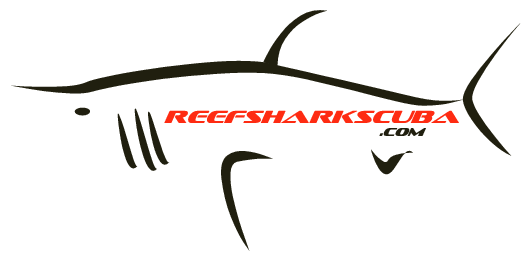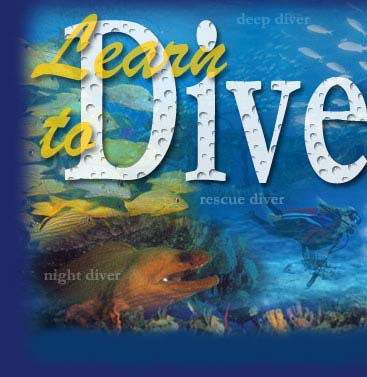

SCUBA TRAINING FAQ's

Frequently Asked Questions
1. Why do you not post your prices? Pricing is based on several things - class size, your schedule, and to what degree you are willing to do independent study. Private instruction is typically not as cheap as you would find at a local dive shop, but with private instruction, you will receive individualized training that you simply cannot get in a "mass training" classroom. Please contact me and I will quote you a price.
2. Which is the "best" agency to certify through? My honest opinion is that almost all of the agencies out there are appropriate. Each have their own positives and negatives. The agencies simply set minimum training standards; they aren't the ones with you in the pool or open water when you are training. What's more important is the quality of instructor you choose. Just like there are some good and some bad agencies, there are good instructors and not-so-good instructors within those agencies. Certainly you should certify through a known agency (PADI, NAUI, YMCA, SSI and others), but make certain that you have a comfort level with the instructor. I instruct through PADI because in my opinion, their educational materials are better suited for learning across a wide range of ages. All of the certifying agencies share one thing in common - a desire to get people exposed to this great sport. Beware the agency or instructor that spends more time "bashing" other agencies than actually teaching!
3. Why do you teach independently? Although there are some great shops in the Houston area, I chose to teach independently so that to give me the freedom to limit my class sizes and so I would not have to ally myself with the particular gear or brands that the shop carries, or to "push" gear during my instruction presentations. Certainly, gear is an important part of this sport, but you have paid good money for instruction, not sales and marketing pitches.
4. What are the minimum requirements for scuba diving? If you have an appetite for excitement and adventure, odds are that you can become a scuba diver. The minimum age for scuba activity is 10 years old (please see my comments on children). Students younger than 15 who successfully complete the course qualify for the PADI Junior Open Water certification, which they may upgrade to PADI Open Water Diver upon reaching 15. From a physical standpoint and for safety, all students complete a brief questionnaire that asks about medical conditions that could be a problem while diving. If none of these apply, you sign the form and you're ready to start. If any of these do apply to you, as a safety precaution your physician must assess the condition as it related to diving and sign a medical form that confirms that you are fit to dive.
5. How good of a swimmer must I be to scuba dive? You have to have a basic swimming comfort. A waterskills assessment must be successfully completed before you can certify as an Open Water Diver. This waterskill assessment consists of swimming 200 yards. There is no time limit for this, you may use any swimming strokes you want. You will also float and treat water for 10 minutes, again using any methods that you want.
6. What if I have physical limitations or disabilities? Any individual who can meet the performance requirements of the course qualifies for certification. There are many adaptive techniques that allow individuals with physical challenges to meet these requirements. Please email me with specific questions or concerns that you may have.
8. Do women have any special concerns regarding diving? Aside from pregnancy, no. Because physiologists know little about the effects of diving on the fetus, the recommendation is that women avoid diving while pregnant or trying to become pregnant. Menstruation is not normally a concern.
9. My ears hurt when I go to the bottom of a swimming pool or when I dive down snorkeling. Will that keep me from becoming a scuba diver? No, assuming you have no irregularities in your ears and sinuses. The discomfort is the normal effect of water pressure pressing in on your ears. Fortunately, our bodies are designed to adjust for pressure changes in our ears – you just need to learn how.
10. Does a history of ear trouble, diabetes, asthma, allergies or smoking preclude someone from diving? Not necessarily. Any condition that affects the ears, sinuses, respiratory function, heart function or may alter consciousness is a concern, but only a physician can assess a person’s individual risk. Physicians can consult with the Divers Alert Network (DAN) as necessary when assessing a scuba candidate.
11.
What are the most common injuries associated with diving?
Sun burn and
seasickness, both of which are preventable with over the counter preventatives.
The most common injuries caused by marine life are scrapes and stings, most of
which can be avoided by wearing an exposure suit, staying off the bottom and
watching where you put your hands and feet.
12. What
about sharks?
When you’re lucky, you
get to see a shark. Although incidents with sharks occur, they are
very, very rare and with respect to diving, primarily involve spearfishing or
feeding sharks, both of which trigger feeding behavior. Most of the
time, if you see a shark it’s passing through and a relatively rare sight to
enjoy.
13. What gear will I need for training? At a minimum, you will need to have your own scuba-quality mask, snorkle, dive booties, open-heel fins and weight belt. The brand name on these items are less important than fit and function. Yes, to a certain extent, you get what you pay for when it comes to equipment. I can recommend some quality, cost effective products and places that can sell these to you at a reasonable price. Like anything else, once you find the equipment brand or model that fits you best, shop around.
14. What learning materials will I need? The learning materials required will vary by class. For Open Water classes, you will need a current version of the PADI Open Water Diver Manual and PADI Open Water Diver Video or DVD, or the PADI Open Water Diver Multimedia (combines manual and video for computer based learning). You will also need a Log Book and a PAD Recreational Dive Planner (Table, Wheel, or eRDP).
15. Do you teach children? I make these decisions on a case-by-case basis, predicated on the child's emotional and physical maturity level, dexterity level, and ability to learn and master the skills necessary for certification. There are some risks (other than the obvious) with children scuba diving. Among some of the physiological side effects is a rare condition called avascular necrosis, which results from chronic exposure of developing bones to the increased atmospheric pressure found when scuba diving.
16. Where will the classes and diving take place during training? I'm flexible. Classroom can be at your home or at mine, or anywhere in between. If you prefer self-paced learning, you can do the book work on your own time. The pool sessions typically last between 1-2 days (depending on how quickly you master the essential skills), and again can be either at my pool or at yours (so long as it meets certain training criteria). For Open Water checkout dives, we will spend a minimum of 2 days in Huntsville at the Blue Lagoon. At this time, this is one of the better places for training due to it's good underwater visibility.
For additional questions, clarification, or pricing information, email me at tim@reefsharkscuba.com.
Copyright 2007 - ReefsharkScuba.com
No portion of this site may be used without express written consent of ReefsharkScuba.com